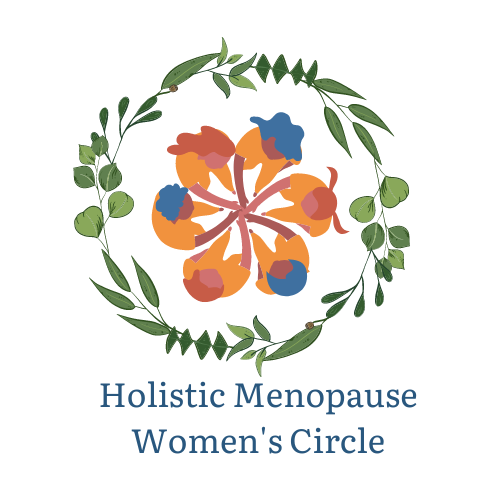
Menopause, a natural transition marking the end of a woman's reproductive years, often comes accompanied by a cascade of symptoms that can significantly impact daily life. From hot flashes and night sweats to mood swings and sleep disturbances, the experience is diverse and intensely personal. While hormone replacement therapy (HRT) remains an option for some, many women are seeking gentler, more holistic approaches to manage their menopausal journey. This article explores the multifaceted world of holistic medicine for menopause, offering insights into natural remedies, lifestyle adjustments, and supportive therapies that can help alleviate symptoms and promote overall well-being.

Understanding the Holistic Approach
Holistic medicine views the body as an interconnected system, emphasizing the mind-body connection. Unlike conventional medicine, which often focuses on treating individual symptoms, a holistic approach seeks to address the root causes of imbalance and promote overall health and wellness. When it comes to menopause, this means considering not just the hormonal shifts but also the lifestyle factors, stress levels, and nutritional needs that can exacerbate symptoms.
Natural Remedies for Menopausal Symptoms
Numerous natural remedies have shown promise in easing common menopausal complaints. These aren't intended to replace medical advice but can be valuable complementary therapies:
- Phytoestrogens: Found in plants like soy, flaxseed, and chickpeas, phytoestrogens are plant-based compounds with weak estrogenic effects. They can help alleviate some menopausal symptoms by mimicking the actions of estrogen in the body, though their effectiveness varies among individuals.
- Black Cohosh: This herb has been traditionally used to reduce hot flashes and night sweats. However, more research is needed to confirm its efficacy and safety. It's crucial to consult a healthcare professional before using black cohosh, especially if you have liver problems.
- Red Clover: Similar to black cohosh, red clover contains phytoestrogens and is sometimes used to ease menopausal symptoms. Again, professional guidance is recommended.
- Evening Primrose Oil: This oil is rich in gamma-linolenic acid (GLA), an omega-6 fatty acid believed to reduce inflammation and improve skin conditions, potentially benefiting women experiencing dryness and other skin changes during menopause.
- Herbal Teas: Certain herbal teas, such as chamomile and lavender, can promote relaxation and improve sleep quality, which can be beneficial for managing menopausal sleep disturbances.
Lifestyle Adjustments for Menopausal Well-being
Alongside natural remedies, adopting a supportive lifestyle can significantly improve the menopausal experience:
- Diet and Nutrition: A balanced diet rich in fruits, vegetables, whole grains, and lean protein is essential. Focusing on foods rich in calcium and vitamin D can help maintain bone health, a critical concern during menopause. Limiting processed foods, sugar, and saturated fats can also contribute to overall well-being.
- Regular Exercise: Physical activity plays a crucial role in managing menopausal symptoms. Regular exercise, including cardiovascular workouts and strength training, can help improve mood, reduce hot flashes, and maintain bone density.
- Stress Management: Chronic stress can exacerbate menopausal symptoms. Incorporating stress-reducing techniques such as yoga, meditation, deep breathing exercises, or spending time in nature can significantly improve both physical and mental health.
- Sleep Hygiene: Prioritizing sleep is vital during menopause. Creating a relaxing bedtime routine, maintaining a cool and dark sleep environment, and practicing relaxation techniques before bed can help improve sleep quality.
Supportive Therapies
Several supportive therapies can complement natural remedies and lifestyle adjustments:
- Acupuncture: This traditional Chinese medicine technique involves inserting thin needles into specific points on the body to stimulate energy flow and reduce symptoms like hot flashes and night sweats.
- Yoga and Tai Chi: These mind-body practices combine physical postures, breathing techniques, and meditation to reduce stress, improve flexibility, and promote relaxation.
- Cognitive Behavioral Therapy (CBT): CBT can be particularly helpful in managing mood swings and anxiety associated with menopause. It teaches coping mechanisms and strategies to manage negative thoughts and emotions.
Important Considerations
While holistic approaches offer a promising avenue for managing menopausal symptoms, it's crucial to remember that they are not a one-size-fits-all solution. What works for one woman may not work for another. It's important to:
- Consult a healthcare professional: Before starting any new natural remedy or making significant lifestyle changes, it's essential to consult a doctor or other qualified healthcare provider. They can help assess your individual needs, rule out other medical conditions, and ensure that any chosen remedies are safe and appropriate for you.
- Be patient and persistent: Finding the right combination of therapies may take time and experimentation. Don't get discouraged if you don't see immediate results. Consistency is key.
- Listen to your body: Pay close attention to your body's signals and adjust your approach accordingly. If a particular remedy or lifestyle change isn't working or is causing adverse effects, stop and consult your doctor.
Menopause is a significant life transition, but it doesn't have to be a debilitating one. By embracing a holistic approach that combines natural remedies, lifestyle adjustments, and supportive therapies, women can navigate this phase of life with grace, strength, and improved well-being.
Disclaimer: Artikel ini diolah dari berbagai sumber.
Comments